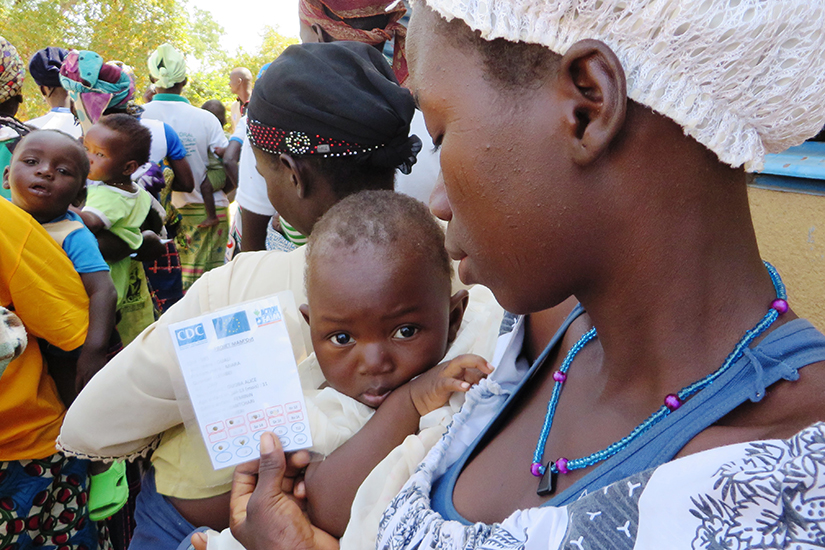This blog was cross-posted from Medium.
Let’s talk about cash!
As thousands of advocates, activists, researchers, and policy makers gather at Women Deliver in Vancouver, Canada, this week to talk about gender equality and women’s rights, I hope we can insert cash into the discussions. More specifically, cash transfers for women displaced by conflicts and crises.

Cash transfers are used to build resilience against hunger and malnutrition in Burkina Faso. © EC/ECHO/Anouk Delafortrie. Licensed under CC 2.0
In my work with the Women’s Refugee Commission (WRC), I have seen firsthand how cash transfers can play a huge role in achieving gender equality and economic empowerment.
Cash leverages women’s strengths and resilience. It enables household choice and provides dignity. It is faster to deliver and can be more efficient than in-kind assistance. And it supports economies in recovering from crisis.
Despite all these benefits and all the talk about scaling cash within the humanitarian system, year after year the use of cash assistance in the protection sector trails behind its use in all other sectors. Humanitarians routinely use cash as a key input to support refugee women to start businesses for the first time, rebuild their families’ toppled shelters, improve access to clean drinking water, diversify their families’ diets, afford their children’s schooling, and facilitate access to prenatal health services. Yet cash is often forgotten or ignored when it comes to supporting refugee women’s protection and recovery from gender-based violence (GBV). It is time to change that. Because if women are not protected, they face huge challenges in achieving equality.
Cash is not always an appropriate facet of support for GBV survivors and women at risk; however, when caseworkers identify that cash can help prevent early and forced marriage, or facilitate access to post-rape care, mental health services, and legal recourse that would otherwise be unaffordable, we must not forgo this tool. We must pair it with qualified case management support to ensure that using cash does not expose women to further harm. Refugee women deserve all the tools we have at our disposal to support them to protect themselves. To do so to the best of our ability and at scale we need more research.
A deeper dive needed into cash as a tool for gender equality
We need immediate and rigorous studies across a variety of contexts focused on using cash within GBV case management. The Women’s Refugee Commission (WRC) has partnered with the International Rescue Committee to identify key evidence gaps that merit our collective action. These include:
- the impact of cash for the most excluded and marginalized groups of GBV survivors and individuals at risk, including women with disabilities, married adolescent girls, and trans women;
- how different forms of cash assistance (for example, cash with conditions, cash without conditions, cash-for-work) and ways of delivering cash (ATM card, mobile money, cash the old school way) influence prevention and recovery;
- what activities paired with cash assistance are most effective – gender discussion groups, links to sustainable livelihoods, financial literacy training, etc., to achieve refugee women’s protection; and
- the long-term impacts once the short humanitarian program cycle wraps up and refugee women continue to recover from shocks and may have to respond to new ones.
For three decades, WRC has partnered with refugee women and local and international organizations to call attention to and model the best way forward for refugee women. We are now at the forefront of the intersection of cash assistance and GBV response, as a factor in achieving gender equality.
We invite you to join us!
—-
If you’re at WD2019, come and visit us at Booth #124 in the Fueling Station

